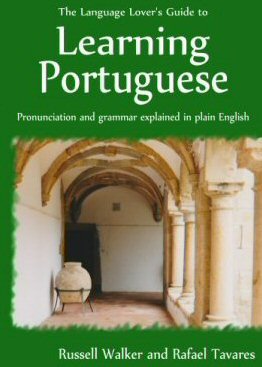There is some variation in the spelling of numbers between European and Brazilian Portuguese. The numbers given below should be sufficient to enable you to work out all of the numbers in-between. Numbers that are not in bold-type are given as examples of how you would combine the bold-type components.
Instead of using a full stop to indicate a decimal point, the Portuguese language requires a comma (or ‘vírgula’ in Portuguese). So a number containing a decimal fraction (take for example, ‘2.34’), is written and spoken with a comma like this: 2,34 = dois vírgula três quatro.
In a similar vein, whereas in English we use a comma to separate our thousands from our millions, etc., the Portuguese use a full stop (or ‘ponto’). So one million and three is written like this: ‘1.000.003’. In order to help you get used to this, I have written the numerals below using the Portuguese style.
Cardinal Numbers (Números Cardinais)
|
0 |
zero |
|
1 |
um/uma |
|
2 |
dois/duas |
|
3 |
três |
|
4 |
quatro |
|
5 |
cinco |
|
6 |
seis |
|
7 |
sete |
|
8 |
oito |
|
9 |
nove |
|
10 |
dez |
|
11 |
onze |
|
12 |
doze |
|
13 |
treze |
|
14 |
catorze (Brazilians sometimes use quatorze) |
|
15 |
quinze |
|
16 |
dezasseis (Brazilian: dezesseis) |
|
17 |
dezassete (Brazilian: dezessete) |
|
18 |
dezoito |
|
19 |
dezanove (Brazilian: dezenove) |
|
20 |
vinte |
|
21 |
vinte e um/uma |
|
22 |
vinte e dois/duas |
|
23 |
vinte e três |
|
30 |
trinta |
|
31 |
trinta e um/uma |
|
40 |
quarenta |
|
50 |
cinquenta (Brazilians might still use a diaeresis: cinqüenta) |
|
60 |
sessenta |
|
70 |
setenta |
|
80 |
oitenta |
|
90 |
noventa |
|
100 |
cem (note: ‘cem’ is only used if the next 2 digits are zeros – otherwise, use ‘cento’) |
|
101 |
cento e um/uma |
|
102 |
cento e dois/duas |
|
120 |
cento e vinte |
|
121 |
cento e vinte e um/uma |
|
122 |
cento e vinte e dois/duas |
|
200 |
duzentos/duzentas |
|
201 |
duzentos/duzentas e um/uma |
|
300 |
trezentos/trezentas |
|
400 |
quatrocentos/quatrocentas |
|
500 |
quinhentos/quinhentas |
|
600 |
seiscentos/seiscentas |
|
700 |
setecentos/setecentas |
|
800 |
oitocentos/oitocentas |
|
900 |
novecentos/novecentas |
|
1.000 |
mil |
|
1.001 |
mil e um/uma |
|
1.985 |
mil novecentos e oitenta e cinco (the first ‘e’ is dropped) |
|
2.000 |
dois mil/duas mil |
|
3.000 |
três mil |
|
10.000 |
dez mil |
|
100.000 |
cem mil |
|
100.001 |
cem mil e um/uma |
|
101.000 |
cento e um/uma mil |
|
125.000 |
cento e vinte e cinco mil |
|
500.000 |
quinhentos mil |
|
735.346 |
setecentos e trinta e cinco mil trezentos e quarenta e seis |
|
1.000.000 |
um milhão (unlike ‘mil’, the preceeding number [in this case, um] is required with milhão and bilião) |
|
1.537.469 |
um milhão quinhentos e trinta e sete mil quatrocentos e sessenta e nove |
|
1.000.000.000 |
mil milhão (um bilhão in Brazil) |
|
1.000.000.000.000 |
um bilião (um trilhão in Brazil) |
The word ‘e’ (meaning ‘and’), as used when speaking or writing numbers in full, appears more frequently in Portuguese than in English. It is generally used between all major components (the bold-type numbers), but for every group of 3 numbers (thousand, million, billion, etc.), the ‘e’ is dropped unless the last 2 digits of the group are both zero. Hence…
|
1.200.300 |
um milhão e duzentos mil e trezentos |
|
1.214.379 |
um milhão, duzentos e catorze mil, trezentos e setenta e nove |
|
1.200.379 |
um milhão e duzentos mil, trezentos e setenta e nove |
|
1.214.300 |
um milhão, duzentos e catorze mil e trezentos |
Ordinal Numbers (Números Ordinais)
|
English Notation |
Portuguese Notation |
Portuguese Words |
|
1st |
1º/1ª |
primeiro/primeira |
|
2nd |
2º/2ª |
segundo/segunda |
|
3rd |
3º/3ª |
terceiro/terceira (‘terça’ is occasionally used as a short-cut in compound words – eg. ‘terça-feira’) |
|
4th |
4º/4ª |
quarto/quarta |
|
5th |
5º/5ª |
quinto/quinta |
|
6th |
6º/6ª |
sexto/sexta |
|
7th |
7º/7ª |
sétimo/sétima |
|
8th |
8º/8ª |
oitavo/oitava |
|
9th |
9º/9ª |
nono/nona |
|
10th |
10º/10ª |
décimo/décima |
|
11th |
11º/11ª |
décimo primeiro/décima primeira |
|
12th |
12º/12ª |
décimo segundo/décima segunda |
|
20th |
20º/20ª |
vigésimo/vigésima |
|
21st |
21º/21ª |
vigésimo primeiro |
|
30th |
30º/30ª |
trigésimo/trigésima |
|
40th |
40º/40ª |
quadragésimo/quadragésima |
|
50th |
50º/50ª |
quinquagésimo/quinquagésima (Brazilians sometimes use the diaeresis: qüinquagésimo/a) |
|
60th |
60º/60ª |
sexagésimo/sexagésima |
|
70th |
70º/70ª |
septuagésimo/septuagésima (the ‘p’ is virtually silent – Brazilian spelling: setuagésimo/a) |
|
80th |
80º/80ª |
octagésimo/octagésima |
|
90th |
90º/90ª |
nonagésimo/nonagésima |
|
100th |
100º/100ª |
centésimo/centésima |
So, ‘one fifth’ is ‘um quinto’, ‘one eighth’ is ‘um oitavo’, etc. (‘one third’ uses the shortened form ‘um terço’). Note though, that the Portuguese use cardinal numbers for dates, not ordinal like we do in English (see section on days, dates and times).

